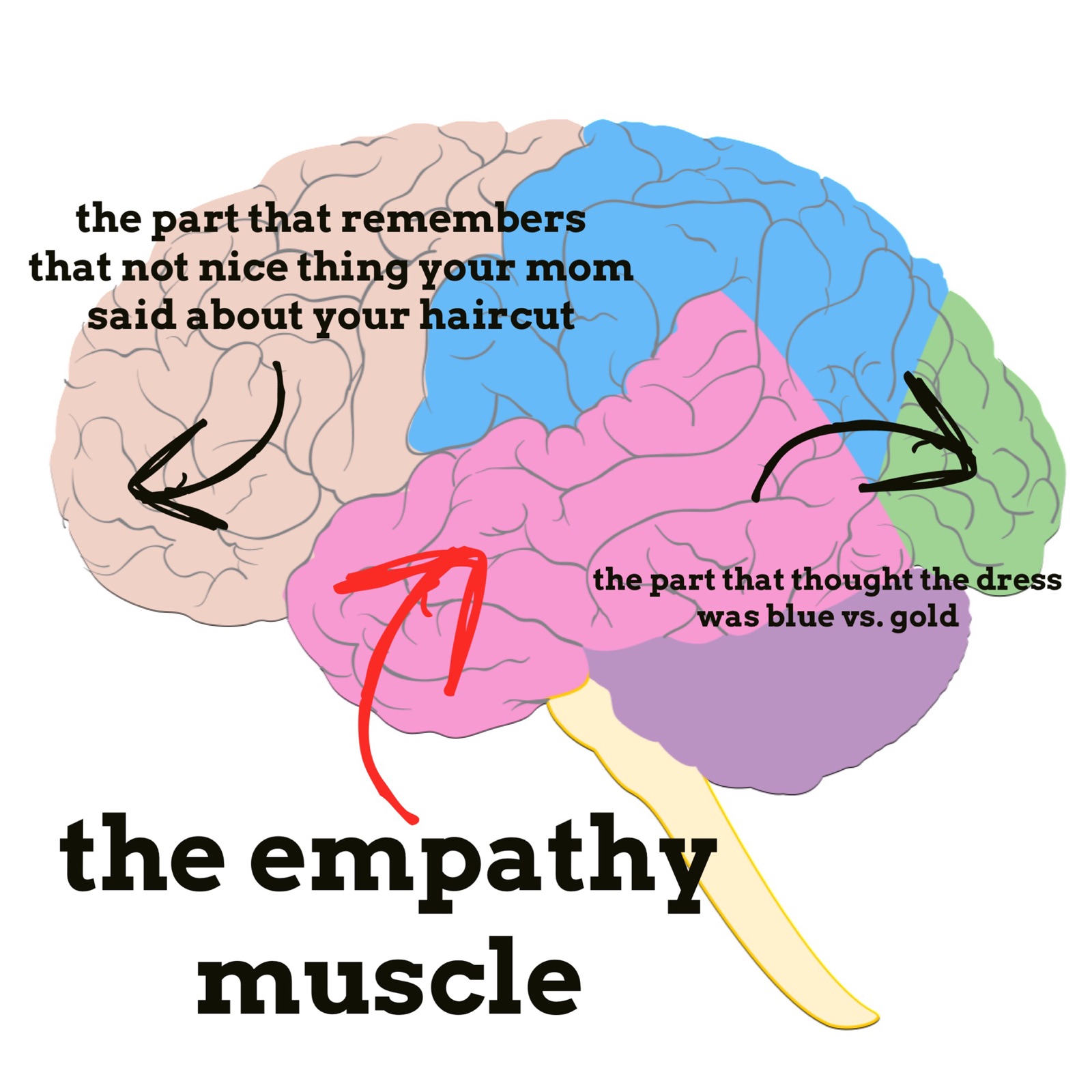Empathy is everything when it comes to friendship—maybe it should also be everything when it comes to marketing. I now feel even more convinced that through “empathic marketing,” we can build real relationships and be the good friends that will make our customers come back. What is empathy, anyway? The more colloquial definition of empathy is something like “being able to walk in another person’s shoes.” But to align that to the above, I’d add “no matter how much those four-inch heels hurt you”—because the difference between empathy and sympathy, according to that study, is the act of truly experiencing someone else’s pain. In other words, when you’re empathetic, you actually feel something. And I’d like to think that better humans make for better marketers. Empathic marketing consultant Brian Carroll put it in more coherent terms in a podcast: “If you ask customers what steps they went through in the buying process or you do focus groups, you find that customers actually don’t fully understand how they make decisions. The better we can understand the emotional side of our customer in their world, the better we can help them have an amazing customer experience.” So we can use empathy to better feel for our customer; that’s benefit number one. To go make things. Things that add value.
Think back to the last time you had a terrible-no-good-very-bad-I-want-to-move-to-Australia day at work and needed to talk to someone about it.
You may have turned to an amazing partner or friend who let you ramble on near endlessly and incoherently, asked appropriate questions at appropriate intervals, handed you Kleenex when needed, periodically interjected with horrified guttural sounds and nasty names for your boss (“The Kim Jong Un of the SaaS C-suite!”), and only when fairly sure you’d gone through the complaints at least 15 times, said something gently solutions oriented like “Have you thought about…”
Most likely, that’s the same friend you went back to the next time your toxic boss hit the nuclear button. Empathy is everything when it comes to friendship—maybe it should also be everything when it comes to marketing.
Between wacko despots, natural disasters, human-caused tragedies, and political divisiveness, 2017 has been a pretty bad year for a lot of people. So I’ve been thinking a lot about empathy and how brands can be better at it. We’re living in an era of unprecedented data and automation, which should skyrocket our business results forward, but I have a sense that in this crazy world, we—and our customers—need human-to-human contact even more.
So I started digging into some research on empathy to see what I could learn. I now feel even more convinced that through “empathic marketing,” we can build real relationships and be the good friends that will make our customers come back.
What is empathy, anyway?
First, let’s make like marketers and level set on what I mean when I talk about empathy.
It might surprise you that the word “empathy” didn’t emerge out of psychology or sociology, but from an 1873 German philosophy Ph.D. candidate referring in his dissertation to the emotional connections people have to art. Using the age-old academic trick of trying to impress his profs by creating a new word, he referenced “Einfühlung,” which translated from German means “feeling into.” (Drop that little piece of trivia the next time you take Aunt Lucy to The Met.)
Today Google reports a staggering 53 million results for the definition of empathy, and I would wager that very few of them are about art. Over the past 144 years, the word has come to represent connections between people. And after trawling through a few of the search results, I went rogue in SERP to find the one I liked the best: Empathy is “an affective response that acknowledges and attempts to understand individual’s suffering through emotional resonance.”
The reason I like this one? It comes from the mouths of people who know better than anyone: cancer patients. It’s from a study, published in the journal Palliative Medicine, attempting to get those dealing with the disease to identify the differences between sympathy, empathy, and compassion. The more colloquial definition of empathy is something like “being able to walk in another person’s shoes.” But to align that to the above, I’d add “no matter how much those four-inch heels hurt you”—because the difference between empathy and sympathy, according to that study, is the act of truly experiencing someone else’s pain.
The more colloquial definition of empathy is something like “being able to walk in another person’s shoes.” But to align that to the above, I’d add “no matter how much those four-inch heels hurt you.”
And I’m not being not figurative here. The area of our…

COMMENTS